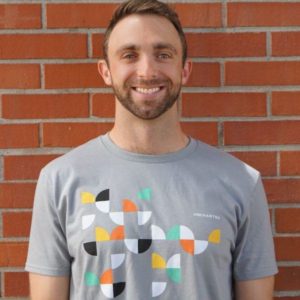A SOCAP Guest Post by Banks Benitez, Co-founder and President of Uncharted

In 2016, Unreasonable Institute partnered with the Rockefeller Foundation to launch the Future Cities Accelerator. These outstanding entrepreneurs will be attending SOCAP17 as a cohort, and, though we didn’t know it at the time, designing and running this program invited us to reimagine our future as Uncharted. The Future Cities Accelerator is the bridge between Unreasonable Institute and Uncharted. It represents a step away from the old Unreasonable Institute model and it represents a step towards the problem-centric programs we plan to run as Uncharted in the future.
As Unreasonable Institute, we were an entrepreneurial accelerator for social ventures. We identified pioneering entrepreneurs who were tackling the most difficult problems and then gave those innovators everything they needed to scale. We are proud of the impact we created. Unreasonable ran 61 programs and supported nearly 600 ventures. In that time 92% of the entrepreneurs who went through Unreasonable Institute programs raised capital and 86% are still active. Collectively our entrepreneurs raised $223M in capital.
But our impact metrics only showed venture growth and transformation. They weren’t about solving problems. When we imagined the next generation of our organization, we wanted to be in the business of solving problems. We envisioned an impact page that spoke to real impact outcomes. Outcomes like:
- Greater numbers of at-risk kids graduating from college
- Improvements in vaccination rates
- Higher incomes that lift more people out of poverty.
We started to have some hard conversations at Unreasonable. If we were serious about solving critical challenges, then stopping at capital raised wasn’t good enough. It’s an impressive metric, but it’s not an outcome directly related to solutions. We realized that if we wanted to be in the business of solving problems, it wasn’t just about changing the impact metrics, it was about changing our model by putting the problem – not the entrepreneur – at the center of our world. And that’s what we’re doing as Uncharted.
At its core, an accelerator is a 21st-century trade-school for entrepreneurs. As Uncharted, we are taking that DNA of an entrepreneurial accelerator and recombining it to create a 21st-century trade-school for people who are solving the world’s most pressing problems.
Three Commitments
Here are three new commitments we are making that will mark the next generation of Uncharted’s work:
1. We will place the challenge at the center of our work.
At Uncharted, our goal is to solve problems and deliver real impact-outcomes. Every program starts with one sentence:
Charting the course from (Big world problem) to (measurable social impact outcomes).
Once we have a rough idea of these start and end points, we dive into researching the problem, understanding its key drivers, challenges, bright spots. Then we generate a refined and nuanced problem-statement, and we select achievable social impact outcomes to measure our progress against. Next, we identify and accelerate promising organizations that have demonstrated success in achieving the measurable social impact outcomes we are after.
Example: We just kicked off a program with the City of Denver and Chipotle to eliminate food deserts in Denver by increasing the access of healthy food into low-income neighborhoods – Uncharted Food Access. Through our research, we learned that there are three levers that can dramatically increase food access: 1) increasing affordability of healthy food, 2) decreasing geographic distance to access healthy food, and 3) educating people on how to integrate healthy food into their diet. These three levers became the selection criteria for the organizations we selected.
2. We will engage a diverse set of players.
We aren’t going to solve the world’s problems by only accelerating early-stage social ventures. Entrepreneurs play an important role, but if we are serious about solving problems, we need to widen the frame and accelerate larger nonprofits, established corporations, foundations, and local governments. It’s time to apply the accelerator model to the system and engage a more diverse set of players. Imagine an accelerator with five social ventures, three major corporations, two big non-profits trying to reinvent themselves, and a municipal government. That is a 21st-century trade-school for the people and organizations in the business of solving problems.
Example: In January of 2017, the American Civil Liberties Union (ACLU), a 97-year old non-profit, enrolled in Y-Combinator, one of the country’s leading entrepreneurial accelerators to reimagine how it would promote justice and civil liberties in the 21st century (learn more here).
3. We will make maps and share them.
As Uncharted, we want to chart the course from impossible to possible by making maps. We see ourselves as cartographers for social impact where our work doesn’t stop after running a successful program and putting a dent in a problem. We want to make maps so others can follow. Like any explorer venturing into uncharted territory, sometimes the maps may not be 100% accurate, but our goal is to pave the way so others can follow and recreate and multiply the impact we have had in their communities.
Example: What do these maps look like? We aren’t 100% certain yet, but we can tell you what they don’t look like. They don’t look like 60-page policy-papers that collect dust on shelves. Our maps will be actionable. They might look more like our Uncharted Playbook that we have developed over the last three years. The Playbook is an “accelerator in a box” where teams from Ecuador to Morocco to Cambodia (and 21 other countries) get everything they need (checklists, budgets, how-to-guides, and curriculum) to run accelerators in their countries.
The Future Cities Accelerator
The mission of the Future Cities Accelerator is to improve the lives of poor and vulnerable populations in US cities. Each venture selected received a $100,000 philanthropic grant, attendance in a 9-month boot-camp that culminates at SOCAP17, an executive coach, a fundraising coach, and 20-hours of pro-bono financial modeling support. Ventures got to meet with mentors like the VP of Partnerships at Facebook, the Co-Founder of Kipp Schools, and the President of Change.org. From 300+ applications from across the United States, we selected 10 extraordinary companies that will be at SOCAP in October:
- Coalition for Queens (Non-profit – New York, NY) – Coalition for Queens quadruples the incomes of adults live in poverty by teaching them how to code and helping them find premier positions at companies like Google and Airbnb. They have currently trained and placed over 100 students, seeing incomes rise from $18,000 / year on average to over $85,000 / year on average.
- CommonLit (Non-profit – Washington, D.C.) – 62% of high school students graduate unable to read proficiently. CommonLit exists to put an end to this problem. Using a website that equips teachers with the tools to gauge student’s reading levels and provide readings and standards-based quizzes that are tailored to each student’s reading level, Common Lit allows teachers to help each individual student improve their reading ability. CommonLit began in Washington D.C. and currently has over 500,000 student users across the country.
- Thread (Non-Profit – Baltimore, MD) – For 9th graders who face challenges outside the classroom ranging from homelessness to parents with drug addiction, Thread provides a team of five volunteer mentors, who provide unconditional support and are available 365 days/year, 24 hours/day. To date, 250 students performing in the bottom 25% of their high school class have entered Thread. 92% of them have graduated from high school and 90% are accepted into college.
- Learn Fresh (Non-Profit – Denver, CO) – Learn Fresh teaches kids math through NBA Math Hoops, a basketball-based board game and online app. Through independent evaluation, kids who play NBA Math Hoops perform 2.8x better than control groups in basic arithmetic. With sponsorship from the NBA, Learn Math Fresh is currently reaching over 20,000 kids across the US.
- Storytime (For-Profit – Washington, D.C). It’s hard for many low-income families get books, but everyone has a phone. StoryTime is a free app that lets teachers text illustrated books to families, which increases reading in these homes by 160%. It’s 1000 times cheaper than shipping paperbacks, and Stanford researchers have proven its literacy impact. Schools across 12 states now use Storytime to deliver books to families so kids can learn to read!
- Haven Connect (For-Profit – Bay Area) – In every city in the United States, the government mandates a certain amount of housing to be discounted in order to house low-income and homeless populations. But the process of getting into this government-mandated “affordable housing” is so onerous, that most low-income people cannot take advantage of it while property managers deal with thousands of paper applications and phone calls from people looking for housing. Enter Haven Connect, the “turbotax for affordable housing.” Haven Connect transforms the affordable housing application, selection, and approval process into an online, user-friendly experience for property managers and applicants.
- mRelief (Non-profit – Chicago, IL) – 45 million families rely on food stamps to eat. In Illinois for example, food stamp applicants need to fill out an 18-page application or sit through a 90-minute phone call, and submit as many as 10 required documents. In other states, the application can be more than 20 pages long and involve hours at the public aid office. mRelief has built an easy-to-use platform on web and text messaging for families to find out if they qualify for food stamps. We text 10 simple questions that take less than 5 minutes to answer. Over 100,000 families in 42 states have used mRelief to secure food stamps and other public support.
- Propel (For Profit – New York, NY). 45 million Americans rely on SNAP Benefits (formerly known as food stamps) to eat. But there’s so much opacity around checking food stamp balance that beneficiaries aren’t able to responsibly budget. To solve this problem, Propel has developed Fresh EBT, a free financial management app for SNAP that allows users to manage and budget their benefits, find places to shop, and access other money-saving resources. Fresh EBT is used by over 150,000 people each week and has users in all 50 states.
- Spoiler Alert (For-Profit – Boston, MA). More than 40 million Americans struggle to get enough food to eat, while nearly 40% of the food produced in the United States never gets eaten – often because food businesses, farms and non-profits lack real-time responsiveness for unsold inventory. Spoiler Alert’s technology platform creates a collaborative, online marketplace that facilitates food donations and discounted sales, while offering the relevant accounting and reporting systems to capture tax benefits and document important financial, environmental and social metrics. Spoiler Alert is working with Sysco Corporation, the nation’s largest food distributor, along with more than 200 organizations in New England committed to getting surplus food to nonprofits providing services to the food insecure.
- EveryoneOn (Non-profit – Washington, D.C.) – In the country that invented the internet, 65 million Americans (20% of the population) do not have access to the internet. In a time where 90% of job applications and college applications are online, EveryoneOn exists to solve this problem. Through brokering deals with internet service providers and technology companies (like Google Fiber, AT&T, and Sprint), and city and state governments, EveryoneOn has provided over 390,000 Americans with affordable and dependable internet access and aims to connect over 1 million by 2020.




